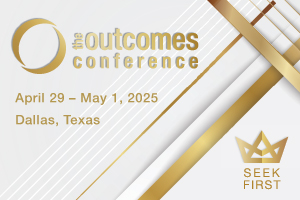
Six Steps Towards Healing for the Wounded Leader
As leaders, do you ever find yourself afraid, abused, broken, fearful or feeling hopeless and insignificant? Do you at times feel lonely or rejected? Have you been in a place where the enemy has whispered a lie into your spirit? Did you believe the lie as truth?
Let’s get to the root of it.
Jeremiah 8:22 asks the rhetorical question, “Is there no balm in Gilead? Is there no physician there?” The answer, of course, is that healing is available to those who seek the Great Physician.
As a Christian leader, ordained pastor, wife of a senior pastor and someone who formerly served on a ministry executive team, I have been wounded. I believed the lie that as a leader I needed to suppress how I felt. I hid behind the mask that all was well. Sometimes as leaders we may wear masks to hide our true emotions and feelings. When this happens you may continue to be wounded and the wounds can grow deeper and deeper until they become debilitating.
Sometimes leaders withdraw and enter into a place of isolation. This happens because we believe the lie that no one needs to know we are faced with a challenge. But God created community so that we can actually commune with others. The enemy wants nothing more than to get us in a place where we isolate ourselves from others. There he can keep us in a cycle of feeling defeated. In my “transformational prayer” workshops, I say, “Isolation leads to darkness, darkness leads to secrets, and secrets could lead to spiritual death.” We never want to become so shackled by lies and our wounds that we find that we are spiritually dead.
Here are six steps towards healing or the wounded leader:
1. Admit that something is wrong.
Like all journeys, the path to healing begins with admitting there is a problem. Deal with the fact that you have been wounded. It is our choice to own the wound or avoid it. At some point we have to say, “Okay I’ve been wounded, now what am I going to do about it?” Only once we decide to own our wound can we participate in the fullness of the life that God has for us as leaders.
2. Realize that apart from Jesus you may find yourself in a web of deception.
No matter what we try to do on our own to get through our place of being wounded, we must seek God, the author and the finisher of our faith, and his will in dealing with the wound.
3. Believe God.
Don’t simply believe in God, but believe him. No matter how dark the circumstance or disabling the pain, with God there is a way to wholeness and healing.
4. Allow the Holy Spirit to be our guide.
It’s about being Christ-centered and not self-centered. Ask the Holy Spirit to walk you through the process of healing by dealing with the source of your pain. This is beyond what you feel. This position will allow you to receive from the Lord. You may not like what you see, but it’s necessary to get through your wound to a place of healing.
5. Express your honest feelings to Jesus.
It’s time to lament! “God, why?” How long? Why are people doing this to me? Tell God, “I’ve done everything you called me to do! I’ve been obedient! I’ve been faithful! “What did I do wrong?” Lamenting is good. This helps move you from your wound to your healing.
6. Finally, forgive.
Forgiveness is necessary. This involves a certain degree of risk. Forgiveness is not forgetting, and it is not excusing. However, it is setting you free from the prison you have built around yourself. Failing to forgive, and that includes forgiving yourself, will lead to personal torment.
I realize that this is a difficult road to travel, but you will be glad to have embarked on a journey of healing wounds that have damaged you, your family, your ministry and maybe even your relationship with Christ.
###
Gail E. Dudley is an international speaker, Christian life coach, transformational prayer facilitator and author of several books. Her newest is Who Told You That?: The Truth About the Lies. (2011). She is an ordained pastor and serves alongside her husband in a church plant in Columbus, Ohio. This post is an excerpt from the 2014 Fall edition of Outcomes Magazine.
True to CLA tradition, you’ll learn from today’s high-impact thought leaders as they address topics relevant for all Christian leaders. Explore CLATV and the regularly updated library of audio and video from more than 100 content providers.






